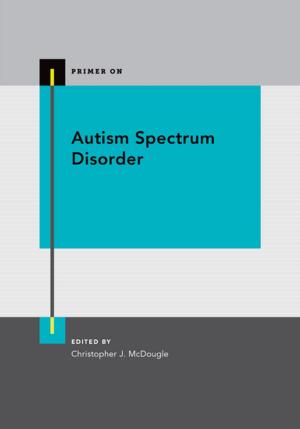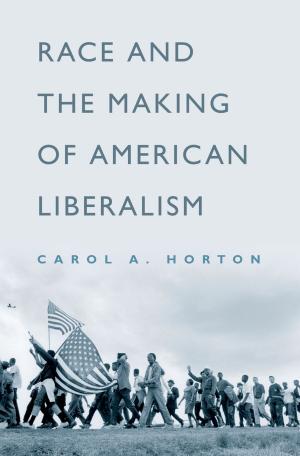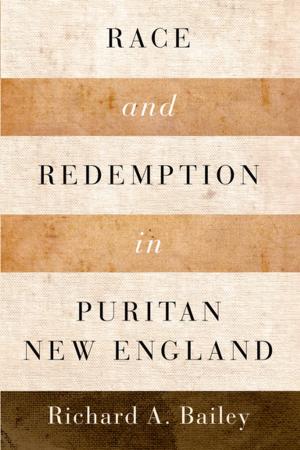Marks of His Wounds
Gender Politics and Bodily Resurrection
Nonfiction, Religion & Spirituality, Theology| Author: | Beth Felker Jones | ISBN: | 9780190294946 |
| Publisher: | Oxford University Press | Publication: | April 12, 2007 |
| Imprint: | Oxford University Press | Language: | English |
| Author: | Beth Felker Jones |
| ISBN: | 9780190294946 |
| Publisher: | Oxford University Press |
| Publication: | April 12, 2007 |
| Imprint: | Oxford University Press |
| Language: | English |
It is a central tenet of Christian theology that we will be resurrected in our bodies at the last day. But we have been conditioned, writes Beth Felker Jones, to think of salvation as being about anything but the body. We think that what God wants for us has to do with our thoughts, our hearts, or our interior relationships. In popular piety and academic theology alike, strong spiritualizing tendencies influence our perception of the body. Historically, some theologians have denigrated the body as an obstacle to sanctification. This notion is deeply problematic for feminist ethics, which centers on embodiment. Jones's purpose is to devise a theology of the body that is compatible with feminist politics. Human creatures must be understood as psychosomatic unities, she says, on analogy with the union of Christ's human and divine natures. She offers close readings of Augustine and Calvin to find a better way of speaking about body and soul that is consonant with the doctrine of bodily resurrection. She addresses several important questions: What does human psychosomatic unity imply for the theological conceptualization of embodied difference, especially gendered difference? How does embodied hope transform our present bodily practices? How does God's momentous "yes" to the body, in the Incarnation, both judge and destroy the corrupt ways we have thought, produced, constructed, and even broken bodies in our culture, especially bodies marked by race and gender? Jones's book articulates a theology of human embodiment in light of resurrection doctrine and feminist political concerns. Through reading Augustine and Calvin, she points to resources for understanding the body in a way that coheres with the doctrine of the resurrection of the flesh. Jones proposes a grammar in which human psychosomatic unity becomes the conceptual basis for sanctification. Using gender as an illustration, she interrogates the difference resurrection doctrine makes for holiness. Because death has been overcome in Christ's resurrected body, human embodiment can bear witness to the Triune God. The bodily resurrection makes sense of our bodies, of what they are and what they are for.
It is a central tenet of Christian theology that we will be resurrected in our bodies at the last day. But we have been conditioned, writes Beth Felker Jones, to think of salvation as being about anything but the body. We think that what God wants for us has to do with our thoughts, our hearts, or our interior relationships. In popular piety and academic theology alike, strong spiritualizing tendencies influence our perception of the body. Historically, some theologians have denigrated the body as an obstacle to sanctification. This notion is deeply problematic for feminist ethics, which centers on embodiment. Jones's purpose is to devise a theology of the body that is compatible with feminist politics. Human creatures must be understood as psychosomatic unities, she says, on analogy with the union of Christ's human and divine natures. She offers close readings of Augustine and Calvin to find a better way of speaking about body and soul that is consonant with the doctrine of bodily resurrection. She addresses several important questions: What does human psychosomatic unity imply for the theological conceptualization of embodied difference, especially gendered difference? How does embodied hope transform our present bodily practices? How does God's momentous "yes" to the body, in the Incarnation, both judge and destroy the corrupt ways we have thought, produced, constructed, and even broken bodies in our culture, especially bodies marked by race and gender? Jones's book articulates a theology of human embodiment in light of resurrection doctrine and feminist political concerns. Through reading Augustine and Calvin, she points to resources for understanding the body in a way that coheres with the doctrine of the resurrection of the flesh. Jones proposes a grammar in which human psychosomatic unity becomes the conceptual basis for sanctification. Using gender as an illustration, she interrogates the difference resurrection doctrine makes for holiness. Because death has been overcome in Christ's resurrected body, human embodiment can bear witness to the Triune God. The bodily resurrection makes sense of our bodies, of what they are and what they are for.















